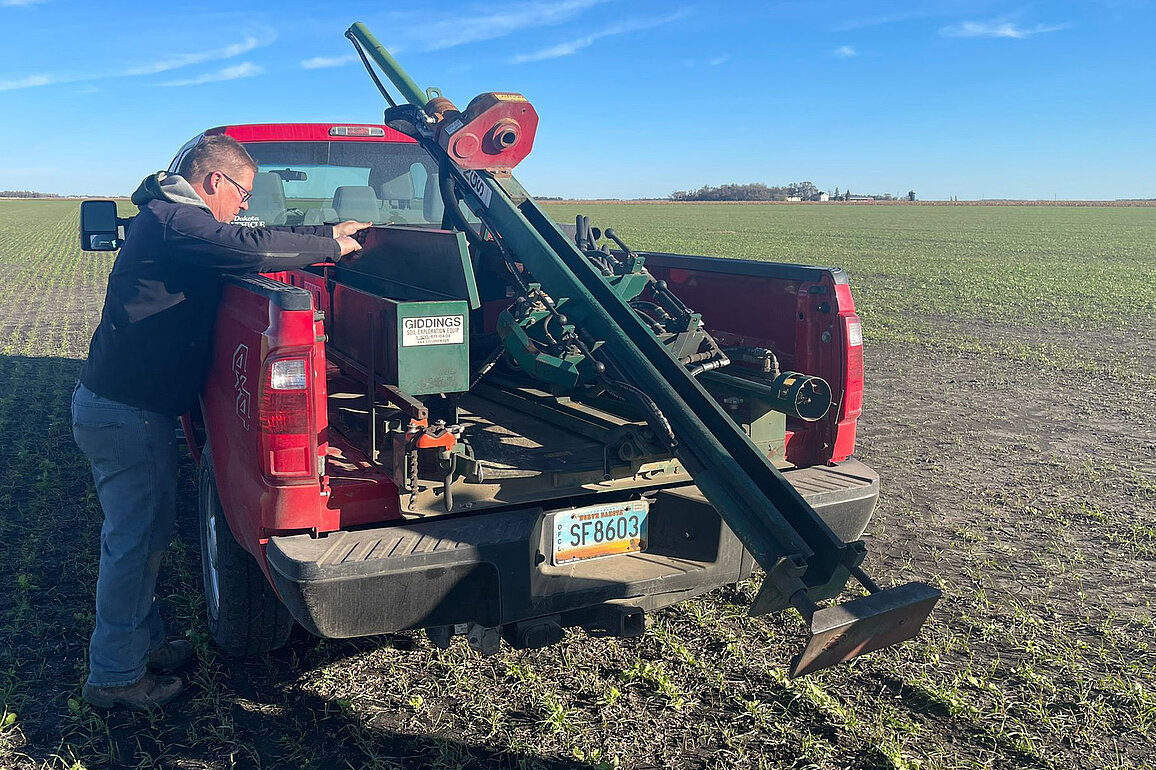NDSU Research Aims to Help Farmers Capture Carbon Credits

You’ve probably heard that soils have the capacity to capture carbon from the atmosphere and store it for a long time, and conservation-based farming practices can help this process.
This concept is part of emerging carbon market programs incentivizing farmers to increase the carbon content of their soils. These programs pay farmers to store carbon by planting cover crops and not tilling their soil. These stored carbon “credits” are then sold to other companies who want to offset their greenhouse gas emissions.
“We know that increasing soil carbon provides many soil health benefits, yet capturing carbon is not a simple or fast process, as the soil carbon cycle is complicated,” says Caley Gasch, NDSU soil science assistant professor in the School of Natural Resource Sciences.
So how can farmers take advantage of carbon credits by guaranteeing the carbon content of their soils, if carbon is constantly cycling through the soil system?
Gasch, along with postgraduate student José Pablo Castro Chacon, NDSU research specialist Joel Bell, and Department of Agricultural and Biosystems Engineering assistant professor Paulo Flores, are working to answer that question.
Though traditional soil laboratory methods can precisely measure carbon in one sample of soil, the research team’s goal is to make recommendations to farmers about where and how much to sample in order to guarantee an accurate measure of carbon in the field.
Their current project involves sampling fields throughout the Red River Valley in order to understand more about where carbon is being stored in fields and how to get an accurate measurement as soil conditions can vary widely in one field alone. The team then combines other data sources like drone and satellite imagery and crop yield data to create maps that pinpoint the best places to sample a field for carbon.
In addition, the research team is also testing some of the new commercial sampling tools available on the market that estimate soil carbon without having to remove a soil sample.
“I’m excited about the work we are doing and hope that it will answer questions for North Dakota farmers about whether utilizing carbon markets are right for them,” says Gasch.
FOR MORE INFORMATION:
Caley Gasch, 701-231-7993, caley.gasch@ndsu.edu


